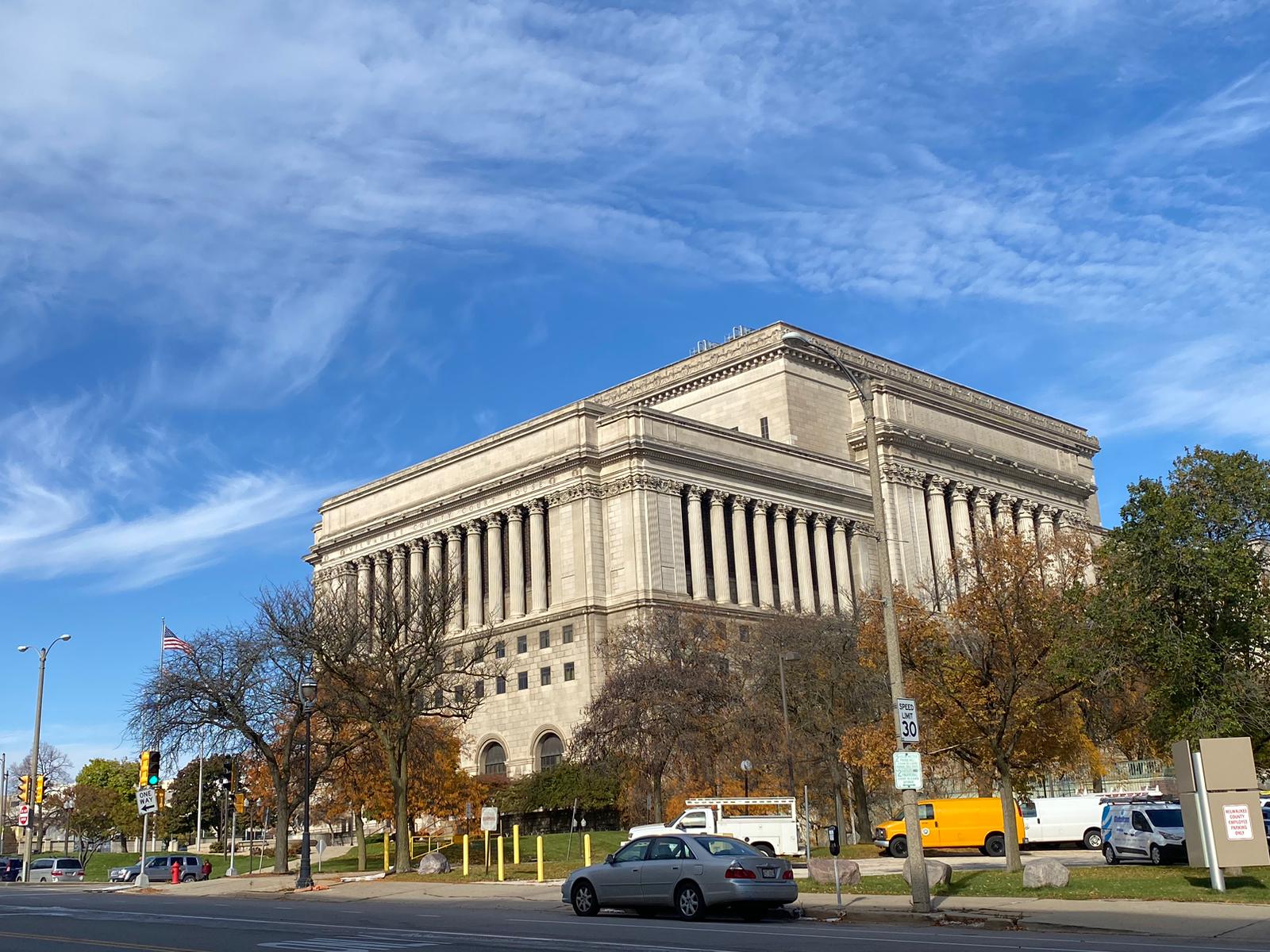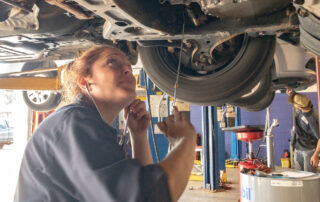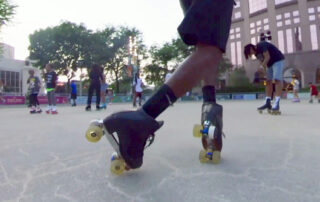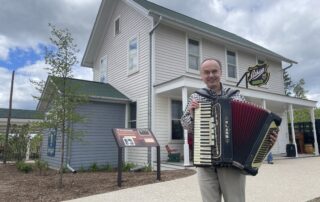Every day in courthouses across the state, people’s lives are affected in consequential ways. Author Shauna Singh Baldwin of Milwaukee suggests the stakes can be even higher when there’s a language barrier involved.
==
The Latin words “Vox Populi, Vox Dei” are engraved on the imposing façade of Milwaukee County’s neo-classical courthouse. The voice of the people, it declares, is the voice of God.
Daily, inside that courthouse, many voices of the people speak American English as judges solemnize marriages and judge cases, prosecutors and defense lawyers argue, bargain and plead; mediators try to heal betrayals.
But the lives of real people happen in several languages. Often witnesses, plaintiffs or the accused speak enough English for transacting normal life, but not enough to understand legal discourse.
Tucked away on the third floor of the Safety Building is an office where Interpreter Coordinator Natalie Nguyen calls on a roster of 108 certified court interpreters to interpret in 17 languages. Her counterparts in the 72 counties of Wisconsin do the same.
My social worker friend, Nimmi Arora, asked me to consider interpreting for members of our community. Punjabi is the 10th most commonly spoken language in the world. Hindi is the third most commonly spoken language in the world, but both are rare in Wisconsin. Accustomed to interpreting for my elders, I signed up for the court interpreter orientation over two weekends.
Instructors patiently described the Wisconsin court system, the expected course of criminal and civil cases. Good knowledge, I thought, even if I didn’t pass the written exam.
But some knowledge must have rubbed off from being an attorney’s wife for 29 years, because I passed the test in English. Then came phone calls with Punjabi and Hindi examiners.
In my first session, I used some English words … That’s normal in a multilingual family. But in court, I needed to become monolingual in each language, as I was when talking to my Irish-American husband.
How could I prepare? One day, I would be in children’s court on a guardian ad litem case, another day I would be required to interpret at a hearing for a restraining order. And human speech in court is not predictable.
I prompted ChatGPT to prepare vocabulary lists with translations for each case type. The AI is only about 80 percent accurate in Punjabi and Hindi, but its word lists have spared me years of on-the-job learning.
Bilingual legal dictionaries soon littered every chair, sofa and table in my condo. I translated and memorized legal terms while walking the Oak Leaf Trail. I began interpreting WPR’s hourly news. I practiced in the car, or while biking, or walking — many people wearing earbuds are ranting at or confessing to Lake Michigan anyway.
In his book “Neurofitness,” Dr. Rahul Jandial explains that the brain has different areas for language processing. He describes a situation before brain surgery where he asked his patient to choose the language she needed more: Spanish or English. An awful impoverishing choice!
As I began interpreting, I became aware of my responsibility to be merely an unobtrusive conduit. Low-English people (LEPs) often asked for advice or opinion, but per the court interpreter’s Code of Ethics, I couldn’t give either.
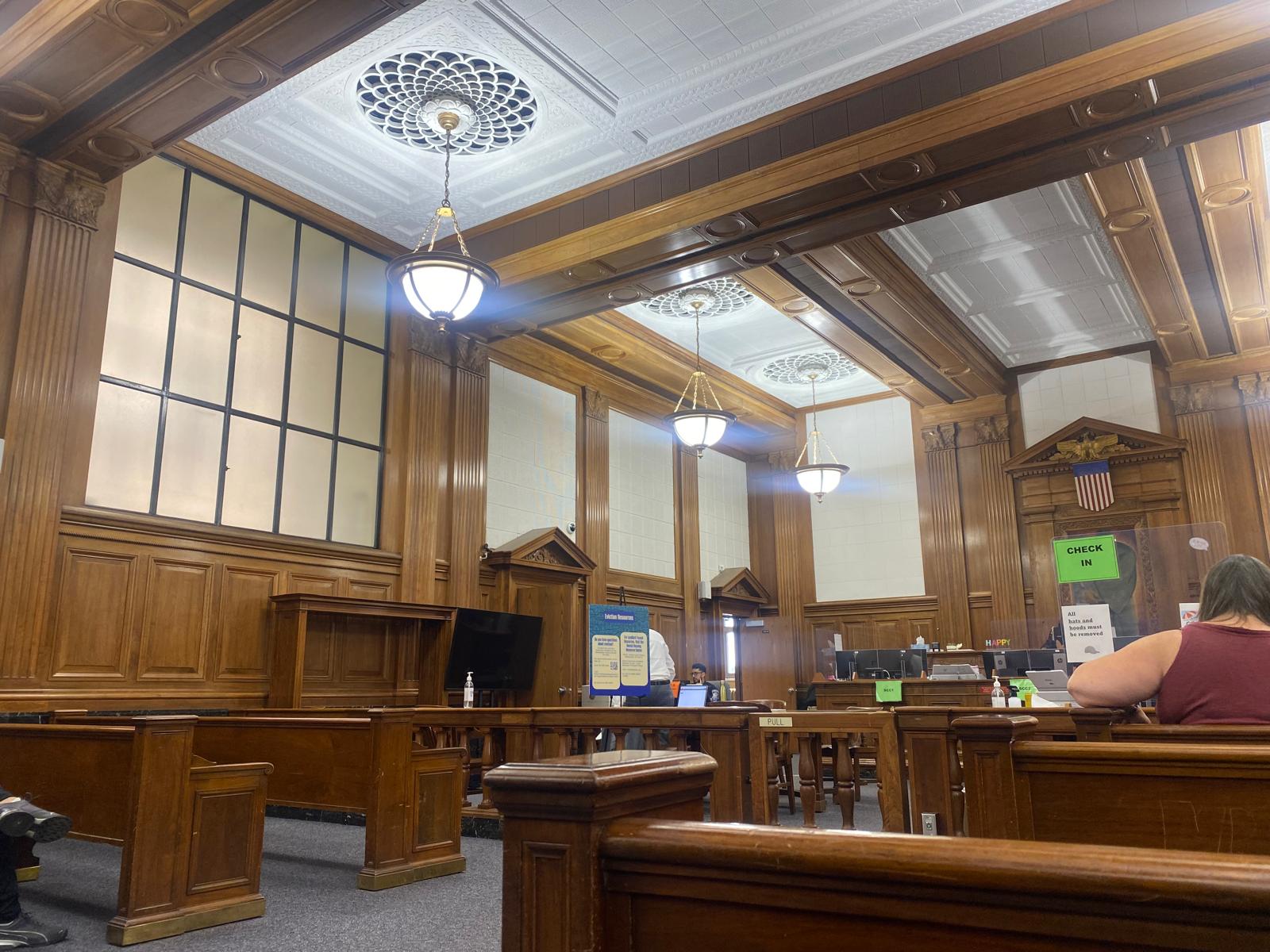
A courtroom inside the Milwaukee County courthouse (Courtesy of Shauna Singh Baldwin)
Words spoken by judges, lawyers, accused, witnesses and victims had to be conveyed with the same meaning, tone and register. Misinterpretation of a judge’s instructions or decisions, or misinterpretation of witness testimony, could lead to a decision being overturned on appeal.
I needed to map legal words like “ilzaam” from the Mughal Court System to and from the British-Indian legal system (allegation) – to the post-independence Indian and Pakistani systems (aarop and shikayat), to American judicial system jargon (complaint and charges). I needed to map Latin phrases like “habeas corpus” to a phrase like “sharirik hazari,” that a non-legal Hindi or Punjabi speaker would understand.
And how should I translate American idioms like “to throw someone under the bus”? Or map American swear words to Punjabi ones? Sometimes it helped that English has appropriated words like “loot,” “thug” and “mugger” from Indian languages. But mostly, I dove down rabbit holes — now I was into trilingual legal dictionaries, along with several translation apps.
Wisconsin — indeed every state — will, for the foreseeable future, need human court interpreters to reduce the world to English, so Americans can navigate conflicts arising in our multilingual world. If you interpret in Spanish, ASL, Mandarin or Rohinga, you might be in demand.
Editor’s note: Shauna Singh Baldwin is a member of the Wisconsin Public Radio Association Board of Directors.
